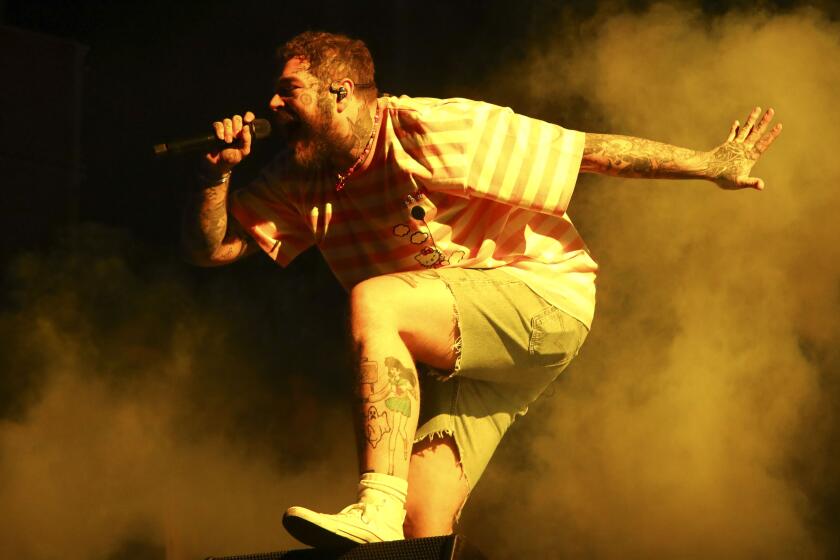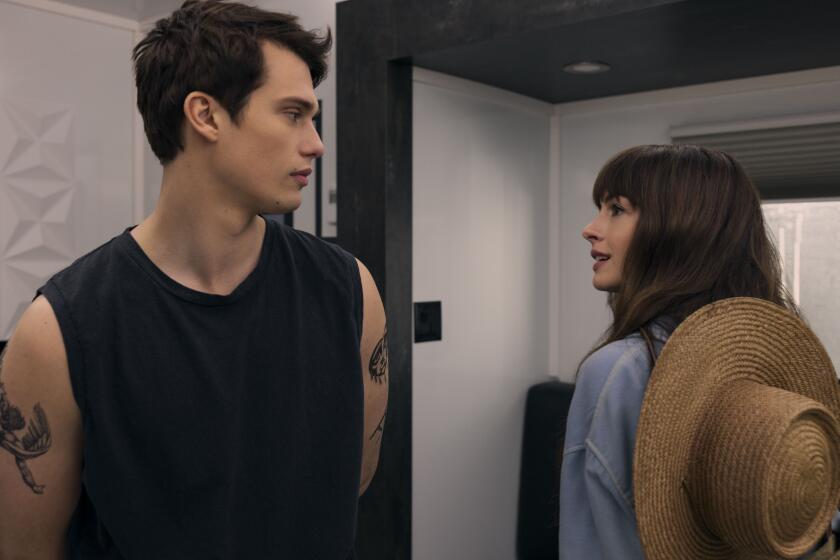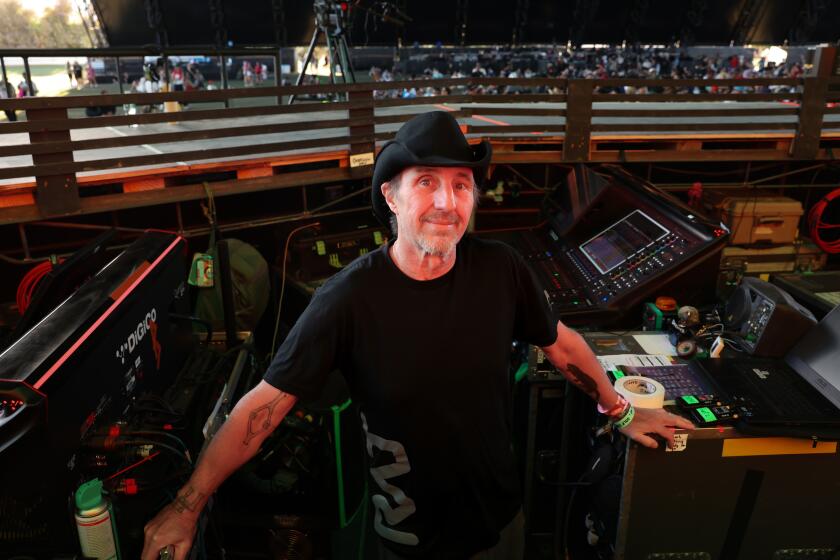Mr. Eazi and Burna Boy highlight the rise of afrobeats at Coachella
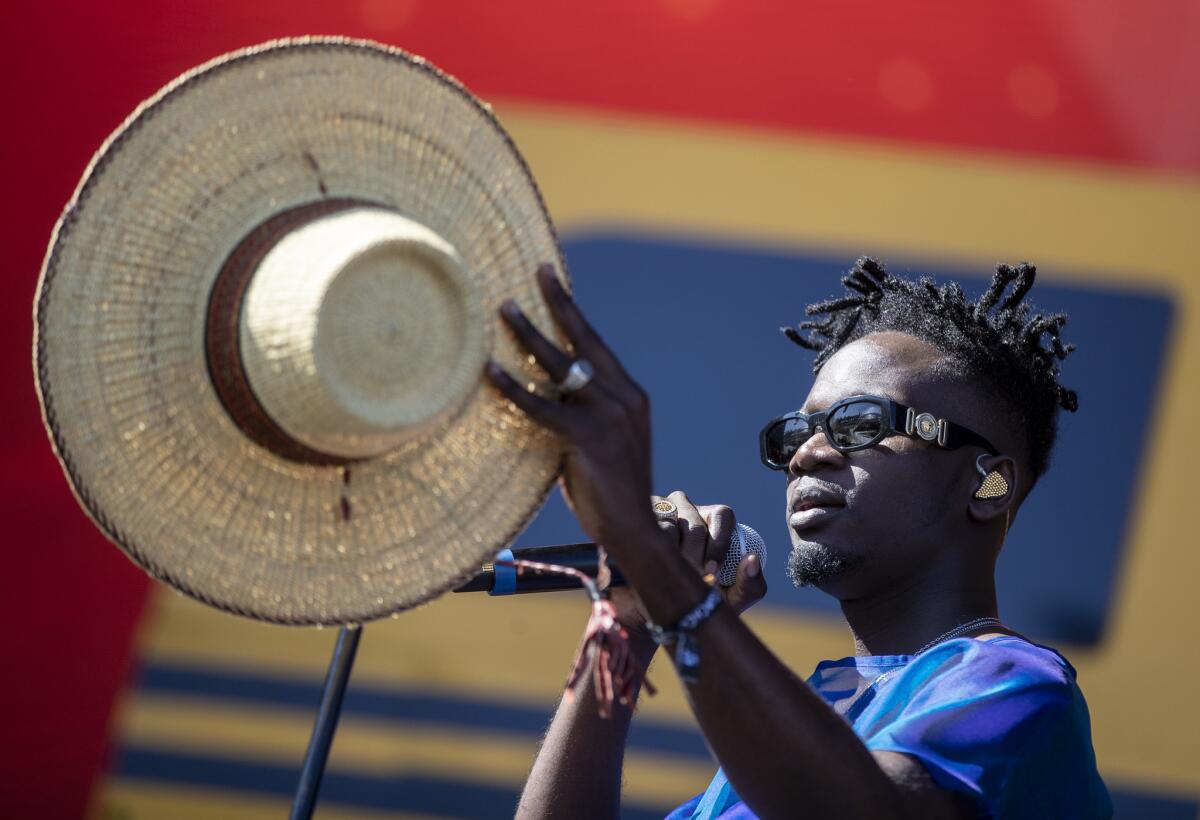
- Share via
This has been a particularly global year for the Coachella Valley Music and Arts Festival. Consider the inclusion of K-pop sensation Blackpink, Norteño band Los Tucanes de Tijuana and Latin pop stars J Balvin and Bad Bunny. The lineup also includes Nigerian stars Mr. Eazi and Burna Boy, two artists representing afrobeats, a genre that’s steadily gaining traction in the U.S. and beyond.
It’s not the first year that Coachella has hosted Nigerian artists. The 2012 performance of Seun Kuti & Egypt 80, featuring Fela Kuti’s youngest son and band, is just one example of the handful of the country’s artists who have played the Indio festival. And 2018 was expected to be a big moment for afrobeats at Coachella when Wizkid was booked, but he missed the gig due to visa issues.
This year though, afrobeats is getting its full due at the desert festival.
FULL COVERAGE: Coachella 2019 »
Not to be confused with afrobeat — a genre fusing traditional Yoruba music with jazz, West African highlife and funk, and pioneered by Nigerian artist Fela Kuti in the 1970s — afrobeats (also related to afrofusion and afropop) began gaining popularity in the 2000s. It mixes afrobeat with hip-hop and electronic influences as well as Caribbean beats and highlife.
Some say it’s the “Drake effect” that brought the genre to mainstream attention in the U.S., with the rapper’s massive 2016hit “One Dance,” an afrobeats-inspired song featuring Wizkid. And with the song, Wizkid became the first Nigerian artist to top the U.S. Billboard Hot 100.
There are other signs that outsiders are paying close attention to the genre. Last July, Universal Music Group announced its expansion into West Africa with the launch of a Nigeria division and this March, Warner Music Group announced a partnership deal with the Lagos-based label Chocolate City Entertainment.
Inviting Wizkid to play Coachella last year was important, said Catherine Appert, assistant professor in Cornell University’s department of music and global hip hop cultures scholar. “The U.S. pop scene is becoming more open to artists from around the globe,” she said. “African artists themselves are being respected and valued.”
It’s a blessing to play on the stage. ... I didn’t think it was going to happen this quick.
— Mr. Eazi
During Coachella’s first weekend, Mr. Eazi played a Saturday-afternoon set to a small but energetic crowd braving the desert heat. Backed by a colorful set design, including a live band, dancers in traditional West African garb and a DJ, Mr. Eazi led the crowd in a chant of his popular catchphrase “zagadat.”
Before performing “Let Me Live,” a reggae-electro track from Rudimental featuring Major Lazer, the performer gave a shout-out to his continent. “My name is Mr Eazi from Nigeria,” he said. “Representing Ghana, Kenya, Zambia, Zimbabwe, South Africa — in fact, the whole of Africa.”
“It’s a blessing to play on the stage,” the artist said over the phone before his performance. “I didn’t think it was going to happen this quick.”
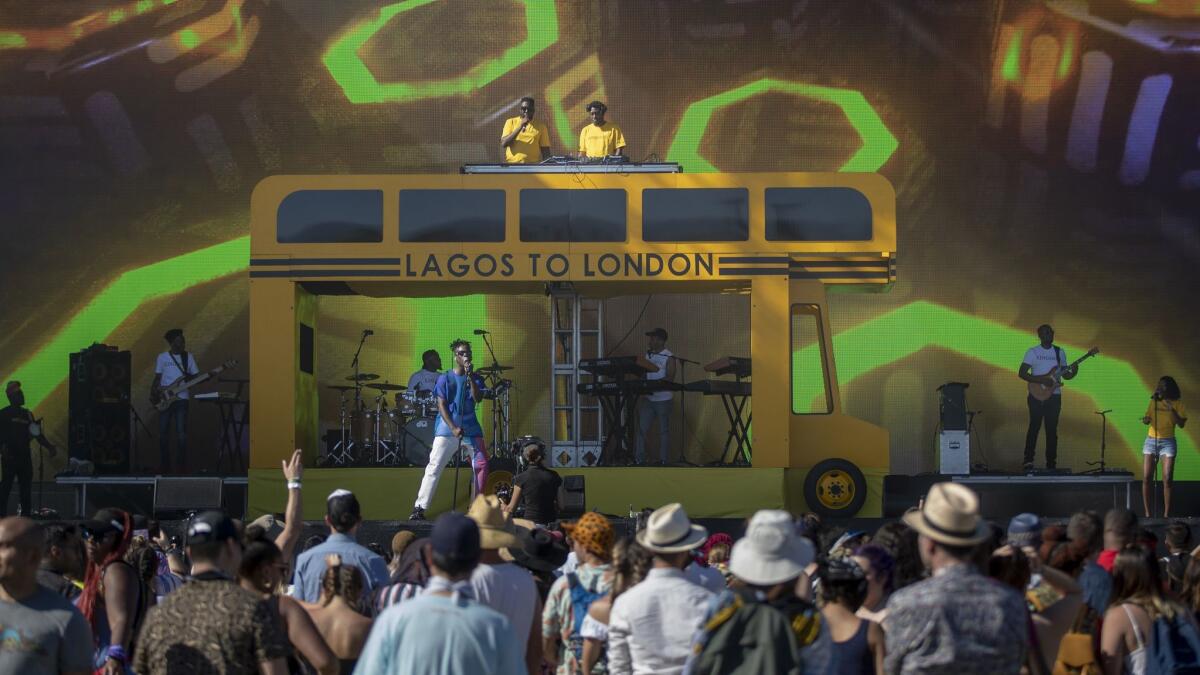
Born Oluwatosin Ajibade in Port Harcourt, Nigeria, Mr. Eazi attended university in Kumasi, Ghana, studying mechanical engineering and working as a club promoter.
Influenced by African sounds like highlife, Mr. Eazi’s music also incorporates hip-hop and other global sounds. The performer played his first U.S. show in 2016, opening for Lauryn Hill in Brooklyn. “I didn’t even have enough songs to perform for the set time she had given me,” he said, laughing.
Now, Mr. Eazi has seen his fanbase grow rapidly around the world. “This year, I’ve worked with artists from all over Europe to South Korea to Latin America,” he said. “I just want to push every boundary and erase any genre lines.”
When Mr. Eazi spoke with The Times, he was in Miami wrapping up a recording session. After touring with Colombian pop-reggaeton crossover J Balvin last year, he plans on doing more work with Latino artists.
J Balvin led the Latin pop wave at Coachella »
“The sound — from Nigerian across Africa — is becoming what you might define as pop because everything right now, music is becoming more fusion,” he said. “The lines are getting blurred every day.”
In recent years, Mr. Eazi has collaborated with popular DJ and producer Diplo, including the dark, dance-inducing track “Open & Close,” from his latest project “Life is Eazi, Vol. 2 — Lagos to London.” It’s a working relationship that’s had a positive effect for both artists.
Diplo, born Wesley Pentz, became familiar with Nigerian music as a young club DJ in Philadelphia. His group Major Lazer has collaborated with several Nigerian artists including Davido and Burna Boy. Last fall, the group toured Africa, stopping in Nigeria and Kenya, among other countries.
“[Mr. Eazi’s] personality, the way he uses the internet...that’s the pivotal part of marketing,” Diplo said. “Maybe after Coachella people will see his show … and that might be the way that it can cross over a little bit.”
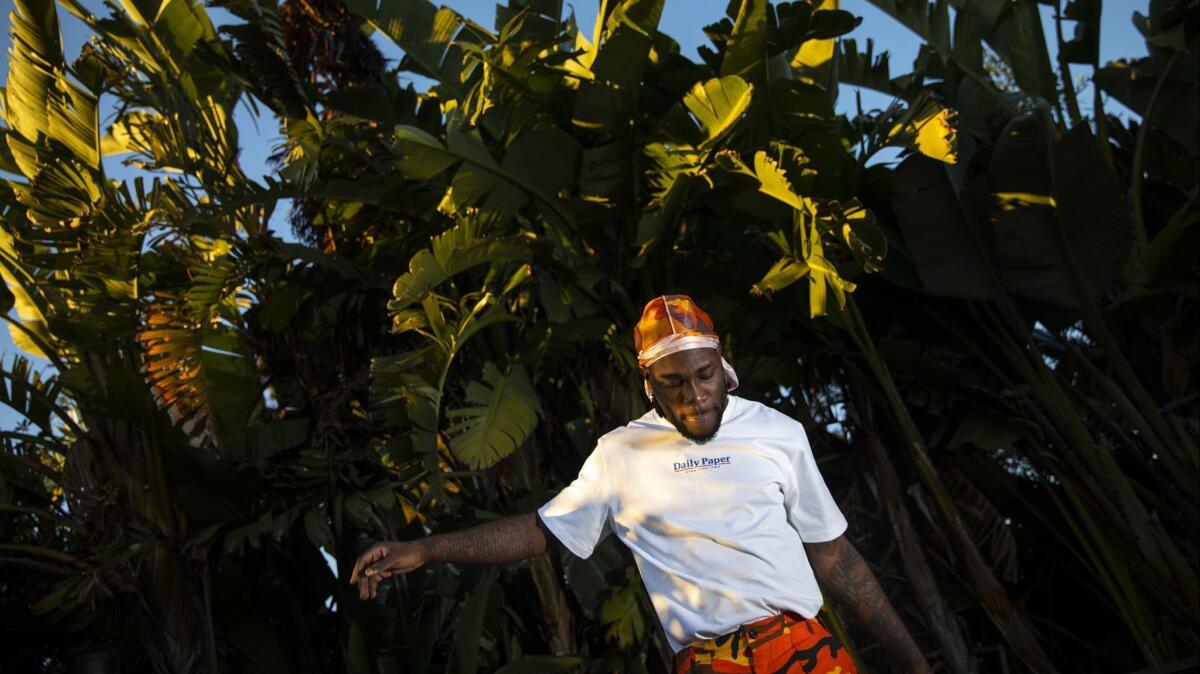
For afrofusion artist Burna Boy, playing Coachella is a way of “spreading the gospel.”
“It’s good for people who haven’t heard me before to hear me,” he said, in the days before his performance.
Born Damini Ogulu, Burna Boy grew up in Port Harcourt, Nigeria, listening to American hip-hop including Naughty by Nature, DMX and Eminem.
After attending university in London, Burna Boy moved back to Nigeria to pursue music, reconnecting with his native west African sound. Since his buzzy2012 track, “Like to Party,” the artist has released a steady stream of projects, including 2018’s “Outside,” which features a collaboration with British singer-songwriter Lily Allen. In March, he released “Steel & Copper,” an EP with L.A. production duo DJDS.
Although he’s not too concerned about global recognition, Burna Boy said it’s natural that his brand of afrofusion is crossing over.
“Africa is like the home of everything. It’s the beginning of everything,” he said. “So it’s like whether or not you directly listen to African music, you have listened to African.”
More to Read
The biggest entertainment stories
Get our big stories about Hollywood, film, television, music, arts, culture and more right in your inbox as soon as they publish.
You may occasionally receive promotional content from the Los Angeles Times.




